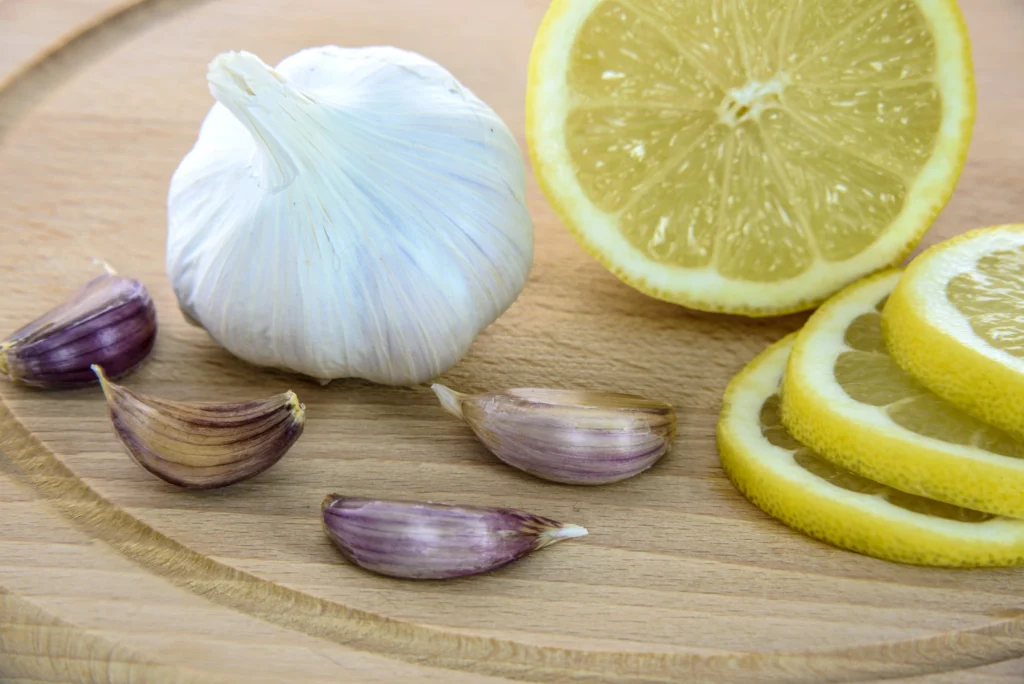Table of Contents
Introduction
Kale Power, often hailed as the queen of greens, is not only a nutrition powerhouse but a versatile leafy friend in the kitchen. With its rise to fame as a superfood, it’s no surprise that health enthusiasts, fitness seekers, and the nutrition-conscious are turning to kale to supercharge their diet. Whether you’re a vegan looking for plant-based nourishment, a fitness aficionado aiming for optimal performance, or part of the aging population striving for a healthful golden age, kale holds benefits that resonate across the board. Here’s a closer look at the astonishing health advantages this leafy green offers:
1. A Nutrient-Dense Powerhouse. Kale Power

With approximately 33 calories, 2.9g of protein, 6.7g of carbohydrates, and 0.6g of fat per 67g serving, kale packs a significant nutritional punch. It’s a splendid way to fuel your body without the caloric load, perfect for those keeping an eye on their intake.
For vegans, getting a broad spectrum of nutrients solely from plant sources is paramount. Kale is a boon on a vegan plate as it is enriched with vitamin K, essential for bone health and blood clotting, and vitamin C, a known immune booster. Additionally, it’s one of the rare plant sources of calcium and iron, which are often concerns in vegan nutrition. The Journal of the Academy of Nutrition and Dietetics points out that kale has the necessary dietary essentials that could be lacking in a vegan diet, making it a must-have in meal planning.
When it comes to fitness enthusiasts, kale’s low-calorie profile supports weight management, while its protein content supports muscle growth and repair. The fiber in kale aids digestion, thus improving nutrient absorption crucial for building a robust physique. Experts in sports nutrition often recommend kale as part of a post-workout meal for its anti-inflammatory effects that stem from its rich antioxidant profile. A study published in the International Journal of Sport Nutrition and Exercise Metabolism reports that the nitrates found in kale may improve physical performance, justifying its place in the diet of athletes and active individuals.
The aging population can greatly benefit from kale’s nutrient density. Its high levels of antioxidants like lutein and beta-carotene are linked with eye health, reducing the risk of age-related macular degeneration. A comprehensive research review in The American Journal of Clinical Nutrition highlights that the vitamin K in kale is vital for bone health, a major concern among seniors. Furthermore, the high fiber content can promote digestive health, which tends to decline with age, and the presence of omega-3 fatty acids in the form of alpha-linolenic acid supports brain health.
In conclusion, kale’s array of health benefits caters to diverse dietary needs and health goals, supported by research and expert opinion. Whether it’s a vegan in search of essential nutrients, a fitness enthusiast keen on recovery and performance, or an older adult focused on preventative nutrition, kale proves to be a valuable addition to their diets. Kale Power
2. Sky-High in Vitamins A, C, and K

Kale is extraordinarily rich in essential vitamins. A single 67g serving offers 670% of the Recommended Daily Allowance (RDA) of Vitamin K, critical for blood clotting and bone health. Additionally, it’s an excellent source of Vitamins A and C, supporting immune health, vision, and skin elasticity, making it a must-have in your diet. Kale Power
Vitamin A is renowned for maintaining healthy vision and skin, and a serving of kale provides 206% of the RDA, according to the USDA National Nutrient Database. This nutrient also plays a crucial role in the functioning of the immune system and the integrity of mucous membranes. Expert dieticians often emphasize the importance of Vitamin A in warding off diseases and ensuring the proper functioning of the heart, lungs, and kidneys. Kale Power
The Vitamin C content in kale, providing 134% of the RDA, is not only a potent antioxidant but also essential for the synthesis of collagen, which is important for skin health and wound healing. The American Journal of Clinical Nutrition published findings that highlight the antioxidant properties of Vitamin C in kale, stating its efficacy in neutralizing free radicals and possibly lowering the risk of chronic diseases. Kale Power
When it comes to Vitamin K, with a whopping 670% of the RDA in a single serving, kale stands out for its substantial contribution to bone health. A study by Osteoporosis International concludes that high Vitamin K intake from greens like kale is associated with a lower risk of bone fractures. The Journal of Nutrition also acknowledges Vitamin K’s role in blood clotting and posits that it could play a part in preventing heart disease by keeping calcium out of artery linings and other body tissues where it could be harmful.
Combining these expert analyses with ongoing research, the narrative is clear: Kale is a crucial player in the preventative nutrition field because it delivers essential vitamins that are foundational for overall health and wellbeing. Kale Power
3. Mineral-Rich for Bone Health and Beyond

This leafy green is an excellent source of minerals such as calcium, potassium, and magnesium. These are indispensable for maintaining strong bones, proper muscle function, and overall cellular health. For individuals following a vegan lifestyle, kale is a standout choice to ensure adequate mineral intake.
Calcium is often associated with dairy, but kale offers a plant-based alternative that bolsters bone health, particularly important for those avoiding animal products. A single serving of kale provides about 9% of the daily recommended calcium intake, contributing to the structure and function of bones and teeth. The bioavailability of calcium from kale is also a subject of interest to nutritionists. Research in the Journal of Agricultural and Food Chemistry suggests that kale’s calcium is comparatively well absorbed by the body, much like the calcium from milk.
Potassium, another mineral abundantly found in kale, is crucial for cell function, aiding in nerve transmission, and muscle contraction, including vital heart function. The American Heart Association highlights the role of potassium in counteracting the detrimental effects of sodium on blood pressure, suggesting that the high potassium content in kale can help maintain a healthy blood pressure and reduce the risk of cardiovascular diseases.
The presence of magnesium in kale, offering about 6% of the RDA in a serving, ties into its bone health benefits by assisting with the conversion of vitamin D into its active form, which is essential for calcium absorption. Moreover, magnesium supports hundreds of enzyme reactions in the body and is tied to energy metabolism, as published in Nutrition Reviews.
Experts like registered dietitians and nutrition scientists stress the importance of a diet rich in these minerals that kale provides. The comprehensive mineral content of kale, when consumed as part of a diverse diet, can support not only strong bones but can also contribute to the prevention of osteoporosis, aid in muscle function, and promote cellular health, all of which are crucial to maintaining a balanced and active lifestyle. The ongoing findings in nutrition science advocate incorporating kale into diet plans, praising its role in holistic health and chronic disease prevention.
4. Antioxidant Powerhouse

Kale is loaded with antioxidants like quercetin and kaempferol. These substances help combat oxidative stress and inflammatory processes in the body, potentially lowering the risk of chronic diseases, including heart disease and cancer. It’s nature’s way of providing a protective shield for your cells.
The robust antioxidant profile of kale can’t be overstated, especially with its ample supply of flavonoids like quercetin and kaempferol. Quercetin, a natural polyphenol, is well-regarded for its anti-inflammatory and antiviral properties. A review in The Journal of Allergy and Clinical Immunology brings attention to quercetin’s potential in reducing the symptoms of allergies and asthma due to its ability to modulate the immune response and inhibit histamine release.
Similarly, kaempferol, another prominent flavonoid in kale, has garnered attention from researchers studying its anticancer effects. Findings published in Food & Function highlight that kaempferol may induce cancer cell death and inhibit the spread of cancer cells, offering promising implications for cancer prevention strategies.
Antioxidants in kale act synergistically to mitigate oxidative stress, which if left unchecked, can lead to chronic inflammation—a known contributor to a myriad of diseases. The marriage of these compounds in kale can be seen as a strategic alliance against cellular damage, as researchers in Advances in Nutrition suggest that a higher dietary intake of these antioxidants is linked to a reduced risk of several degenerative diseases.
Overall, the consensus among experts is that integrating antioxidant-rich foods like kale into a regular dietary pattern may bolster the body’s defense against the impacts of oxidative stress, possibly leading to a decrease in the prevalence of chronic diseases and an increase in overall health longevity.
5. Heart Health Ally

The fiber, antioxidants, and omega-3 fatty acids in kale can support cardiovascular health by lowering blood pressure, reducing cholesterol levels, and offering anti-inflammatory effects. Incorporating kale into your diet can be a strategic move in a heart-healthy eating plan.
In line with kale’s reputation as a heart health ally, its nutritional profile supports various facets of cardiovascular wellness. Dietary fiber, found abundantly in kale, is a critical component that has been extensively studied for its role in heart health.
According to the American Heart Association, a diet high in fiber can lower the risk of heart disease and stroke by helping to reduce the levels of LDL (low-density lipoprotein) cholesterol, often referred to as ‘bad’ cholesterol. Kale provides a generous amount of this nutrient, which also aids in digestion and can help maintain steady blood sugar levels.
In addition to fiber, kale’s omega-3 fatty acids—specifically alpha-linolenic acid (ALA)—add to its heart-supporting qualities. Omega-3s are widely recognized for their anti-inflammatory properties and potential to lower heart disease risk. The Journal of Nutrition has documented that a higher intake of ALA may be beneficial for heart health by potentially reducing the buildup of plaques in the arteries and lowering the risk of arrhythmias.
Cardiology experts often recommend the inclusion of leafy greens like kale in heart-healthy diets because of these components. Dr. Annabelle Santos Volgman, a renowned cardiologist and professor of medicine, advocates for plant-based diets rich in greens to her patients for their potent mix of vitamins, minerals, and antioxidants, which all contribute to cardiovascular protection.
When it comes to expert opinions, the consensus is strong regarding kale’s place in a heart-healthy diet. Dr. Caldwell B. Esselstyn Jr., author and former heart surgeon at Cleveland Clinic, cites the importance of leafy greens like kale for patients with cardiovascular disease. In his studies and dietary guides, he emphasizes that the endothelial-friendly properties of kale help maintain the integrity of our blood vessels.
Moreover, the role of antioxidants —quercetin and kaempferol included— in kale cannot be underestimated. As confirmed by the American Journal of Clinical Nutrition, these antioxidants contribute significantly to the prevention of oxidative stress, which affects the endothelium and can lead to the progression of atherosclerosis.
Encouraging the consumption of kale could play a meaningful role in the collective endeavor to promote heart health and prevent cardiovascular diseases, highlighting once more the remarkable benefits of this nutrient-dense vegetable.
6. Eye Health Protector
Rich in lutein and zeaxanthin, kale contributes to the protection of your eyes. These nutrients can reduce the risk of macular degeneration and cataracts, two common eye disorders that can impair vision, especially as you age.
The visual benefits of kale extend beyond common knowledge, as its high concentrations of lutein and zeaxanthin act as critical nutrients for eye health. Regular consumption of kale may significantly contribute to the prevention of age-related macular degeneration and cataracts, offering a natural defense against vision impairment.
Ophthalmologists often laud kale as a superfood for the eyes. Dr. Rachel Bishop, a chief consultant at the National Eye Institute, emphasizes that the body does not naturally produce the significant amounts of lutein and zeaxanthin found in kale. Therefore, incorporating this leafy green into your diet is vital for replenishing these eye-protecting antioxidants.
The American Optometric Association has recognized that lutein and zeaxanthin filter harmful high-energy blue wavelengths of light and act as antioxidants in the eye, protecting and maintaining healthy cells. As a result, these nutrients have been associated with a lower risk of chronic eye diseases.
Moreover, studies in the Journal of Ophthalmology have shown that a higher dietary intake of these key antioxidants correlates with longer-term retina health and a decreased chance of developing chronic eye diseases. Researchers have begun advocating for an increased public emphasis on dietary sources rich in these antioxidants as an effective measure to combat the onset of eye-related disorders.
Overall, the array of essential nutrients kale provides has impressed experts across various fields. As research continues to uncover the full spectrum of health benefits tied to this vegetable, it remains a dietary recommendation for anyone looking to safeguard their vision into their later years.
7. Aiding Digestion and Detoxification
Kale is a great source of fiber, promoting regular digestion and helping prevent constipation. It’s also rich in sulfur and chlorophyll, which can support your body’s detoxification processes, cleansing your liver, and keeping your body feeling refreshed.
The digestive system’s well-being is intricately linked to overall health, and kale’s high fiber content is especially beneficial in promoting a well-functioning digestive tract. The fiber in kale enhances satiety, helping maintain a healthy weight by making you feel full longer, and also assists in stabilizing blood glucose levels. Gut health advocate and gastroenterologist, Dr. Amy Burkhart, points out that the regular intake of high-fiber foods like kale is essential for maintaining a balanced gut microbiome, which is vital for efficient digestion and prevention of gastrointestinal disorders.
Kale’s detoxifying power is fortified by its rich sulfur content. This essential mineral plays a crucial role in phase II detoxification processes within the liver, as highlighted in a study published by the Journal of Nutrition. Sulfur compounds facilitate the elimination of harmful substances and by-products of metabolism, thus supporting overall liver health. Renowned nutritionist Dr. Linda Page, author of “Detoxification,” praises leafy greens such as kale for their role in promoting liver function and enabling the body’s natural detox pathways.
Chlorophyll, abundant in kale, is another detox-supporting compound. It has been linked to the body’s ability to remove toxins and heavy metals, according to recent research in the Journal of Food Science. Dr. Deanna Minich, a nutritionist and detoxification expert, suggests that the chlorophyll in kale may assist in body cleansing and contribute to optimal body function by improving the liver’s filtration ability and supporting healthy digestion.
Given this wealth of health benefits, consuming kale can be a key component of a comprehensive approach to digestive health and detoxification, echoing the sentiment of registered dietitian, Keri Glassman, who frequently emphasizes the importance of green leafy vegetables in detox diets. Glassman encourages her clients to partake in green smoothies and salads rich in kale to keep the digestive system robust and to support the body’s natural detoxification processes.
Conclusion
In the kingdom of greens, kale reigns supreme with its vast array of health benefits. From robust bone health to protecting vision, enhancing digestion, and pushing back against chronic diseases, kale proves to be an indispensable ally in your quest for wellness. For health enthusiasts, fitness seekers, the vegan community, and those navigating the golden years, incorporating kale into your diet could unfold numerous health advantages, taking you a step closer to achieving your health and wellness goals.
So, the next time you pass by the kale at your grocery store or farmer’s market, remember the treasure trove of benefits it holds. Whether in smoothies, salads, soups, or as a crispy snack, there are endless ways to enjoy this leafy green. Dive into the world of kale and embrace the power of plant-based nutrition today!
FAQs
What is kale power, and how does it differ from regular kale?
Kale power refers to the exceptional health benefits associated with consuming kale regularly. While regular kale is already known for its nutritional value, kale power emphasizes its potency in promoting overall health and well-being.
What are some key nutrients found in kale power?
Kale power is rich in essential nutrients such as vitamins A, C, and K, as well as minerals like calcium, potassium, and manganese. Additionally, it contains antioxidants, fiber, and phytonutrients that contribute to its health-promoting properties.
How does kale power support immune health?
The high vitamin C content in kale power helps strengthen the immune system by supporting the production and function of white blood cells, which are crucial for fighting off infections and illnesses.
Can kale power aid in weight management?
es, kale power can be beneficial for weight management due to its low calorie and high fiber content. Fiber helps promote feelings of fullness, which can prevent overeating, while the low calorie content makes it a nutritious option for those looking to manage their weight.
How does kale power contribute to heart health?
Kale power supports heart health in several ways. Its high potassium content helps regulate blood pressure, while its fiber content aids in lowering cholesterol levels. Additionally, the antioxidants found in kale power help reduce inflammation and protect against heart disease.
Is kale power suitable for individuals with certain dietary restrictions, such as gluten intolerance or lactose intolerance?
Yes, kale power is suitable for individuals with gluten intolerance or lactose intolerance, as it is naturally gluten-free and lactose-free. It can be incorporated into various diets, including gluten-free, dairy-free, vegetarian, and vegan lifestyles.
How can kale power be incorporated into a balanced diet?
Kale power can be enjoyed in numerous ways as part of a balanced diet. It can be consumed raw in salads, blended into smoothies, sautéed as a side dish, or added to soups and stews for an extra nutritional boost. Incorporating kale power into meals regularly can help maximize its health benefits and support overall well-being.


No Responses